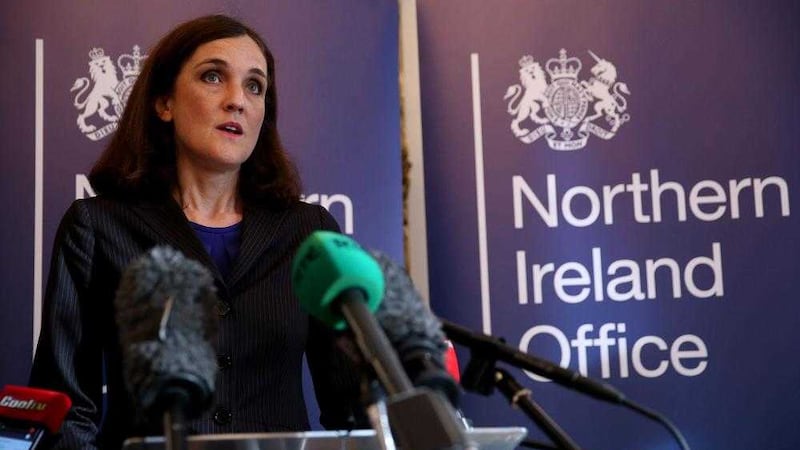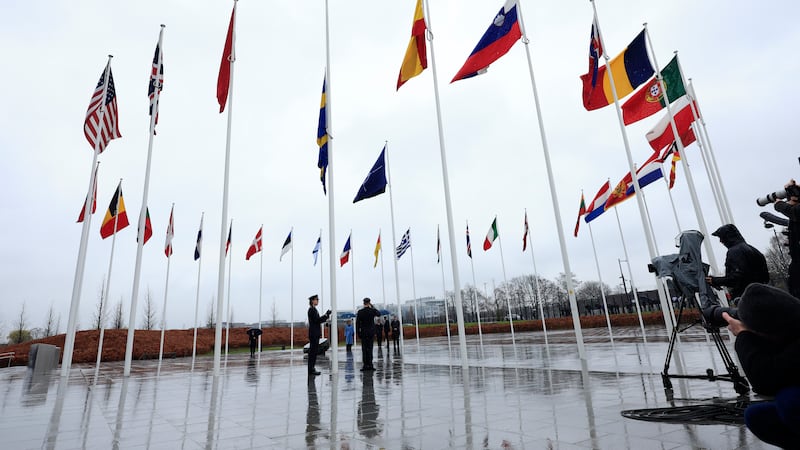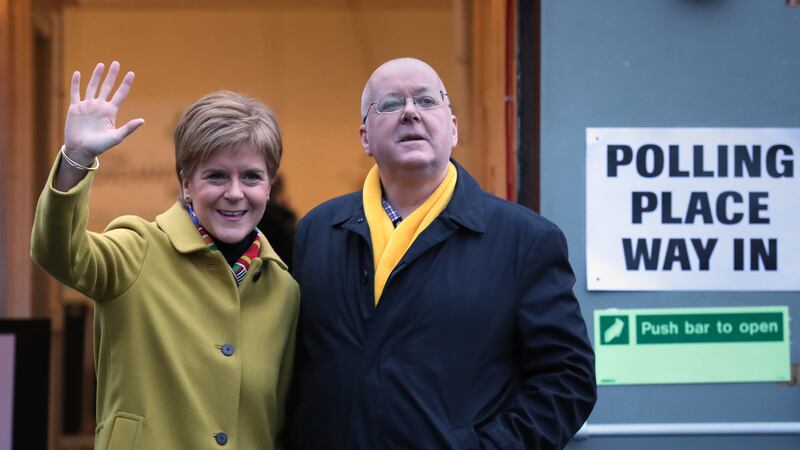ON Monday I had the honour of meeting the Forum for Victims and Survivors writes Theresa Villiers MP.
I was moved to hear their personal stories and was struck by the dignity with which they set out their concerns.
Here was a group of people, some from very different backgrounds, determined to deal with the past in order to build a better future.
We must never forget that it was victims and survivors who suffered most during the bitter years of the Troubles; and at the meeting I was able to thank the forum for the invaluable work they do for the community.
The meeting also gave me an opportunity to share with them my genuine disappointment that the recent talks were not able to deliver the new bodies to deal with the past set out in the Stormont House Agreement.
I gave a firm commitment to do everything I can to remedy that.
In fact, I would argue that this Conservative Government, and the Coalition which preceded it, has actually taken the issue of the past further forward than any of our predecessors.
The new legacy bodies were a key part of last year’s Stormont House Agreement.
While agreement on legacy was absent from the Fresh Start Agreement, significant progress was made on decisions on how to implement these bodies.
While it was not possible to establish sufficient consensus to bring forward legislation, we are closer than ever before to a resolution on the most effective way to deal with the past.
We have listened to those who fear that any new bodies will have a one-sided focus on the State and the security forces.
All of the new bodies would be obliged to operate in ways that are fair, equitable, balanced, proportionate and transparent.
The legislation would make clear that there will be no amnesties or immunity from prosecution.
We also made progress on other sensitive issues, such as taking politics out of the appointment of the director of the Historical Investigations Unit.
The most difficult outstanding issue remains that of how the Government fulfils its duty to protect national security.
I accept this is a loaded term for some.
But in reality, all it means is the Government’s duty to protect its citizens from harm.
National security is not an open-ended concept which can be used to throw a shroud of secrecy over whatever actions the dtate does not want to disclose.
As we have seen with events like Bloody Sunday and Claudy, we are prepared to accept when wrongdoing took place, and to apologise for it.
In that we are far more open than any of the paramilitary groups that operated during the Troubles.
It is also the case that over recent years the State and its security forces have disclosed hundreds of thousands of documents on Northern Ireland’s Troubles through a range of legal processes in one of the largest disclosure exercises in history.
Nevertheless, it is an inescapable fact that there is information that if it were put into the public domain would put people’s lives at risk.
Tragically there are examples of where people accused of being informants have been hunted down and murdered.
In addition there are techniques and capabilities available to our security services that if known would be of value not just to violent dissidents in Northern Ireland, but also to Islamist terrorists who want to attack our country and its people.
No responsible government could allow this to happen.
During the talks, I listened carefully to those who were worried that the UK government might misuse its powers relating to national security.
The proposals I put on the table would have required the UK government and its agencies to give full disclosure of all relevant documents to the HIU with no redactions, to enable them to carry out the fullest possible investigation into the relevant events, including the actions of the State.
As regards onward disclosure of information to victims’ families and the general public, we also stretched ourselves and offered a significant compromise.
I was able to agree with Government colleagues that where material or information is withheld on national security grounds, families would be told this and then given an automatic right to challenge it in the High Court.
We believe this to be both fair and reasonable. Anyone who doubts the independence of the High Court from the Government should look at the number of times it rules against us.
I do not believe the differences that exist on establishing the new legacy bodies are insurmountable.
That is why I fully intend to try my best to resolve them. We owe victims and survivors nothing less.
At the same time I cannot take risks with the safety and security of people here in Northern Ireland and throughout the United Kingdom.








